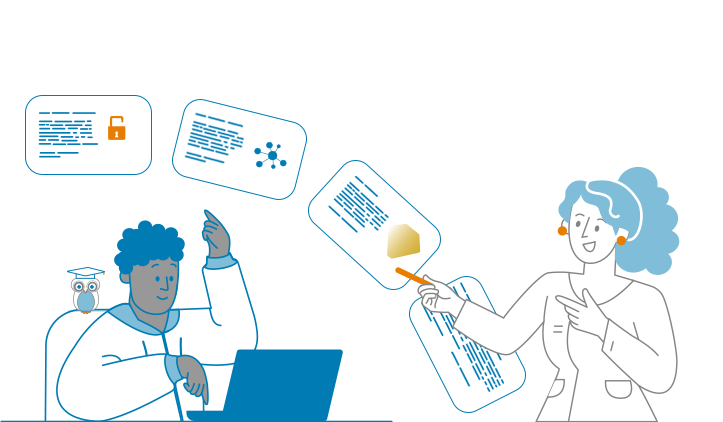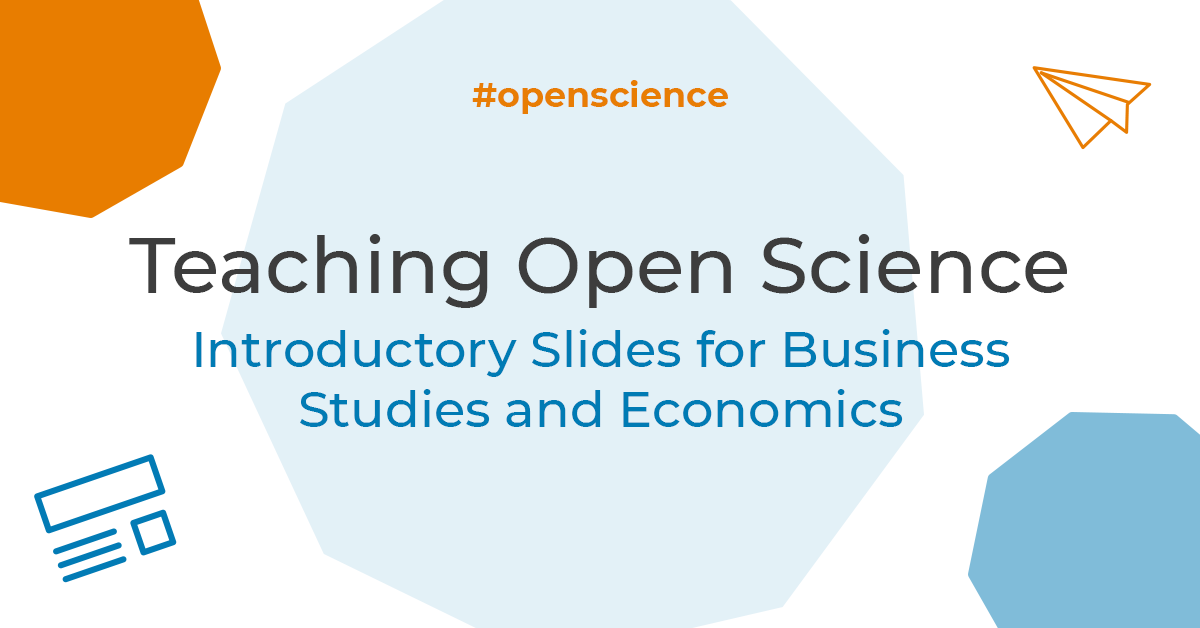How can Open Science be embedded in business studies and economics education? In order to support lecturers in teaching knowledge about Open Science to young researchers, the ZBW is offering a new set of introductory slides in the Open Economics Guide for reuse. The slides are specifically tailored to business studies and economics and include a compact and comprehensible introduction to the central concepts, advantages and practical implementation options of Open Science – ideally suited for use in doctoral programmes.
Open Science helps researchers to make academic work more transparent, collaborative and effective. However, the knowledge required for this must also be imparted, for example as part of doctoral programmes. For this reason, the Open Economics Guide now offers a freely available, English-language introductory slide set as an Open Educational Resource (OER). It has been specially developed to support lecturers in business studies and economics in communicating the potential and practice of Open Science in a simple and accessible way.
The slides offer a compact introduction to the following aspects:
- What Open Science means and why it is relevant
- What is meant by Open Access, Open Data and Open Code
- How researchers can benefit specifically from Open Practices
- How to take the first steps towards Open Science with ease

The presentation is designed to last around 90 minutes, but can be flexibly adapted or divided into smaller units. All slides are closely based on the content of the Open Economics Guide and contain links to further information for a more in-depth look into individual topics. Additional information for lecturers can be found in the slide notes. The slide set is CC-BY-licensed and can be adapted and reused as desired.
You are welcome to use the slide set to suit your needs in order to provide new impetus for Open Science and prepare the next generation of researchers for transparent and future-orientated practice!
The slide set addresses the needs of a community dialogue. We endeavour to continuously develop it further and keep it up to date. We therefore welcome feedback, experience reports and suggestions for additions – together we can make teaching more open!
